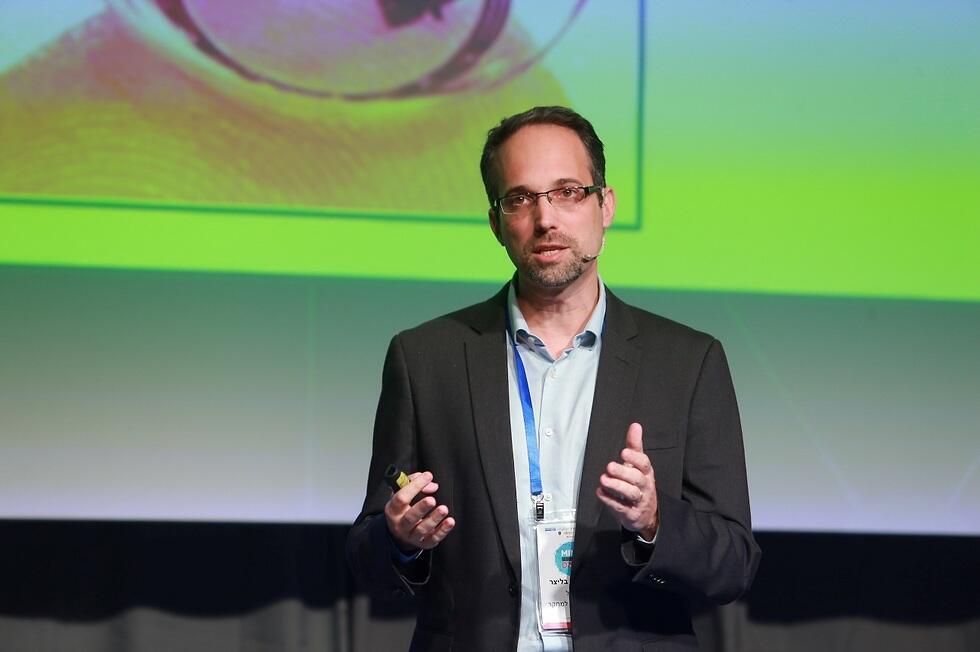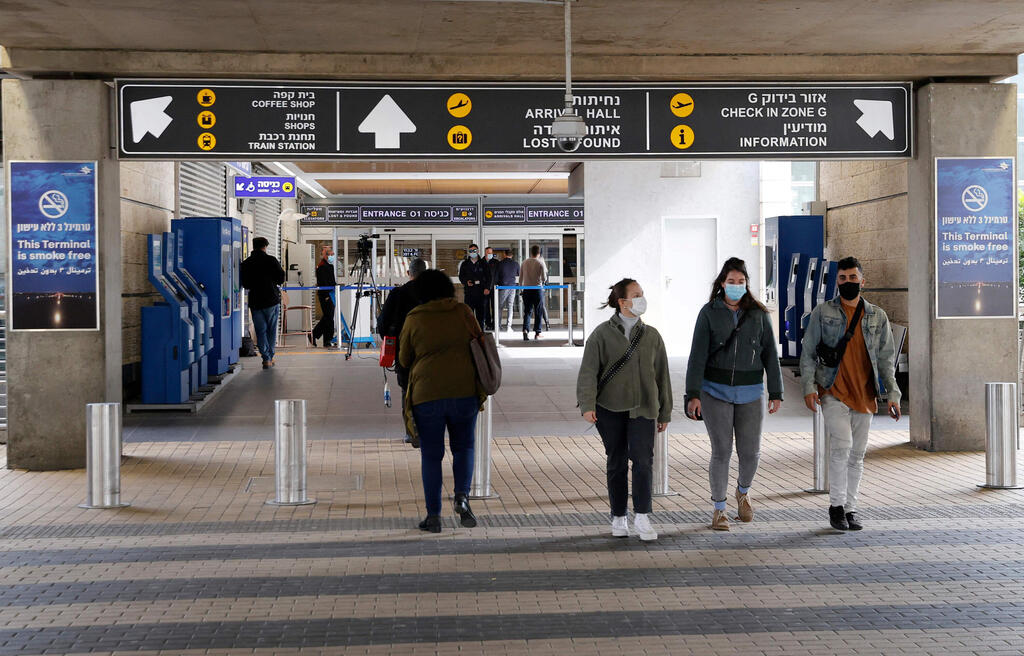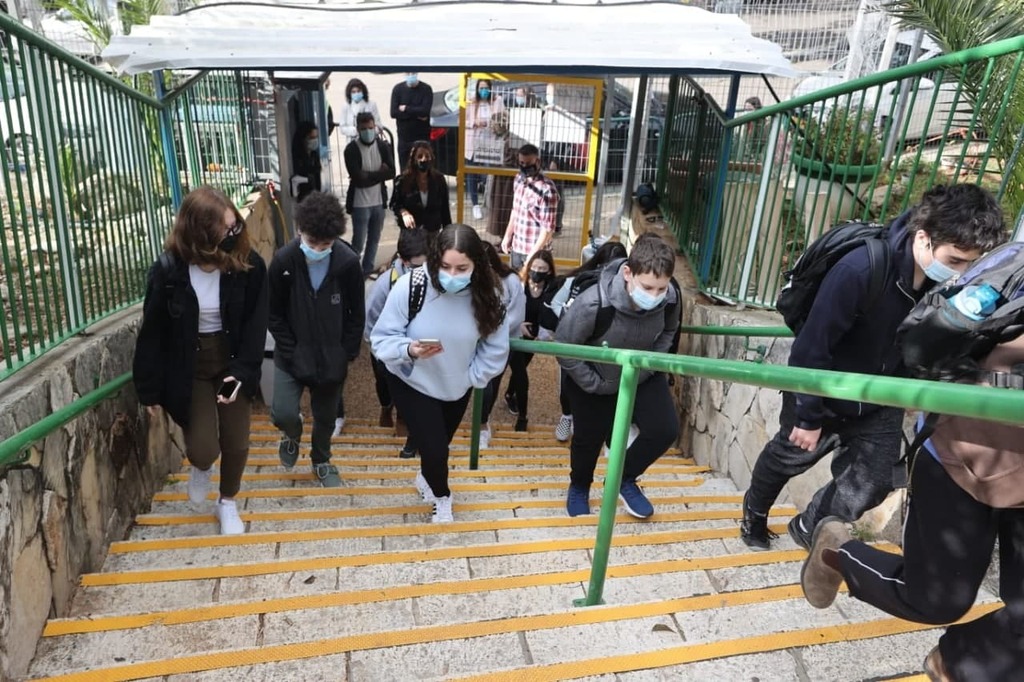Prof. Ran Balicer, head of the Magen Israel national program to combat the coronavirus pandemic, has tried to keep optimistic as the country began its wide reopening of the economy following the lockdown – but warns that if precautions are not adhered to, the situation could deteriorate.
"I am happy we have reached this stage. If we keep it up, we will return to normal life," he said, warning of the importance of observing mitigation measures even today.
5 View gallery
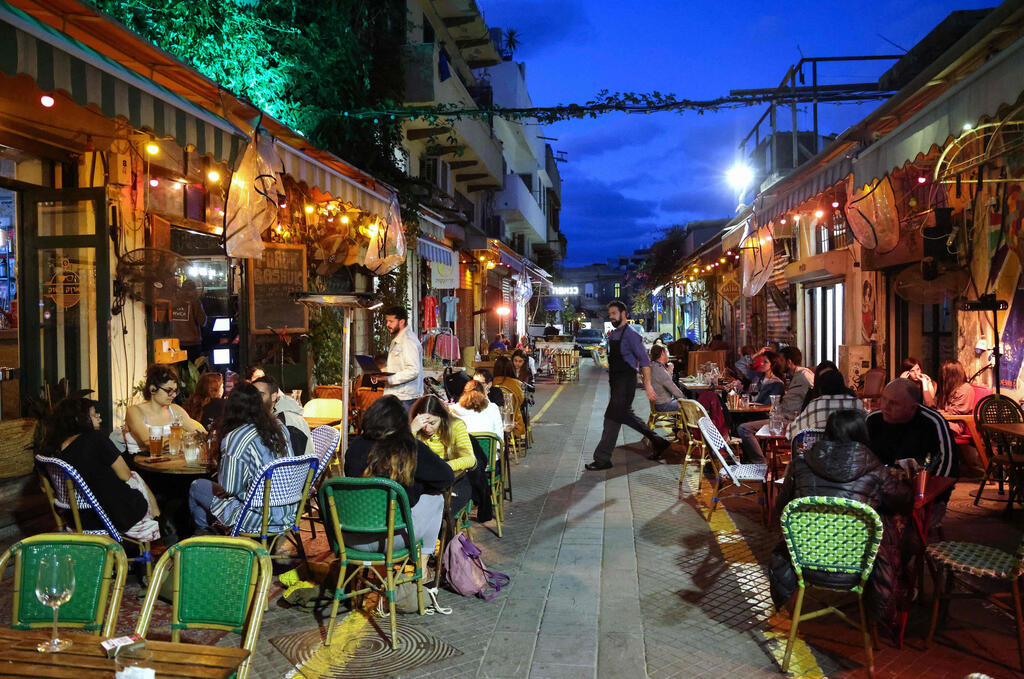

Restaurants reopen in Tel Aviv on Sunday as the country moves to end the last of its lockdown restrictions
(Photo: AFP)
Balicer urged Israelis to keep wearing face masks and observe other precautions in indoor public spaces, adding that "hundreds of new patients a week show that the restrictions are not being adhered to and that is a heavy price to pay."
Though Balicer supported reopening restaurants under strict provisions, he admitted that there were measures implemented that health experts would have advised postponing had they been asked.
"There is no reason for example, to allow mass gatherings to take place all at once," he said, referring to the increase of people allowed in both indoor and outdoor spaces.
"I hope that the decisions on allowing certain mass gatherings indoors will not fail us, and that business owners will adhere to precautions," he said, adding that if he could, he would have delayed lifting restrictions on public gatherings by several more weeks.
However, he did say that Israel's successful vaccination campaign has allowed it to create an outline that allows venues such as restaurants and gyms to reopen for those who have been fully inoculated or have recovered from COVID-19.
"I was happy for those business owners who finally got to see the light at the end of the tunnel, a moment the government decided to take a very serious risk, and I am happy for them," he said.
Balicer said that he is very troubled by the way entry into Israel is handled at Ben-Gurion Airport, adding that the work to minimize the introduction of new cases and even mutations is not yet over.
Two days after Israel officially scrapped mandatory quarantine at state-run coronavirus hotels, Balicer said that there is no real way to know whether isolation at home is being monitored or conducted properly.
"If you do not go by the book, the risk is very high," he said. "It will be very painful if that risk comes to fruition."
In light of reports on new coronavirus mutations being diagnosed around the world, Balicer said that Israel is actually in a very favorable position to prevent such variants from arriving.
"We need to stop dealing all the time with variants and where they spring up. It will happen all the time; new mutations appear constantly," he said.
"There are only three mutations that worry the international community – and two of them are already in Israel. The question now is how do we keep the country and Ben-Gurion Airport going. We can adopt a routine very similar to New Zealand's: They do not shut off the country completely, but closely monitor all arrivals and departures."
Balicer said that Israel should closely look into is a possible Israeli variant, which he says officials are not doing enough to prepare for.
He said that a fourth coronavirus lockdown in Israel would be determined by two trends that are disconnected from one another.
"The first [trend] is the influence of the vaccines on severe morbidity, and the other is their effect on the spread of the virus, which we yet do not fully understand," he said.
"We believe the vaccines bring down infectivity, we just do not know yet by how much. As you continue to lift more and more restrictions, you run the risk of infection spreading, and the question is when will it occur and how much of the population is protected."
Balicer noted that over the past week alone, Israel has seen hundreds of new severe coronavirus cases, with 95% of them being among either people who are unvaccinated or are not fully protected, namely less than a week away from their second dose of the vaccine.
5 View gallery
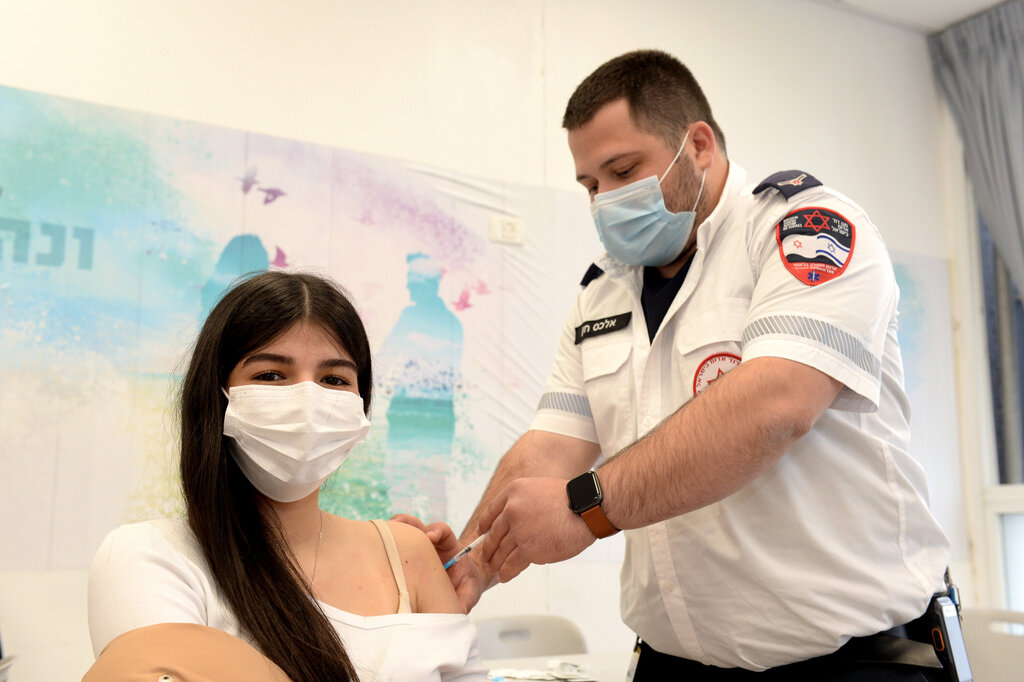

A student is vaccinated against coronavirus at a school in Ramle
(Photo: Kobi Kuankas)
"We have about 3-3.5 million fully vaccinated citizens. That is a lot and it will keep rising. But as more older people remain unvaccinated, it will lead to a rise in serious cases among those groups. The majority of the older population is already fully inoculated and every week we near the point where all of us will be safe enough," he said.
"It is important is to note how many patients in critical condition we will see in the coming month. A little under 300,000 adults who have not been vaccinated will be inoculated in the next week or two. Meanwhile there are hundreds of critically ill patients a week, 75% of whom come from the same small group of unvaccinated people," he said.


